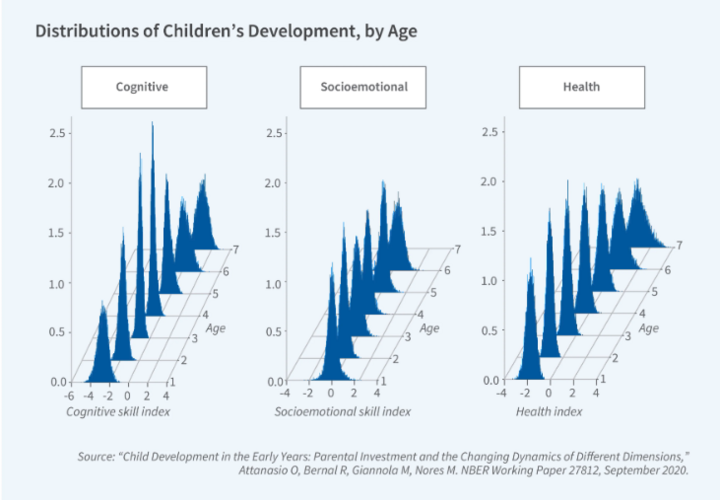Attanasio for NBER Reporter: "Understanding Early Childhood Development and Its Importance"
In a piece that received support from EGC, affiliate Orazio Attanasio reviews selected papers from the economic literature on early childhood development, and discusses findings on how parental behaviors and policy interventions can improve individuals' lifecycle outcomes.

In the process of human development, what happens in the early years — including the first thousand days after conception — is of key importance for determining life-cycle outcomes. Early outcomes, however, are not fixed at birth or determined exclusively by genetics; they are influenced by a variety of factors, including parental behaviors, the environments children live in, and policy interventions. Furthermore, human development is a multidimensional process, with different skills leading to different adult outcomes by interacting in complex ways during the developmental process. Such multidimensionality is made salient by the important roles that different skills play in the production process.
These areas of general consensus are the result of years of contributions by a wide range of researchers to a large, growing, and diverse literature, which I cannot summarize satisfactorily here. I review selected papers from earlier work and my recent research to discuss where the literature stands, with an emphasis on what I think are open challenges and questions for future investigation.